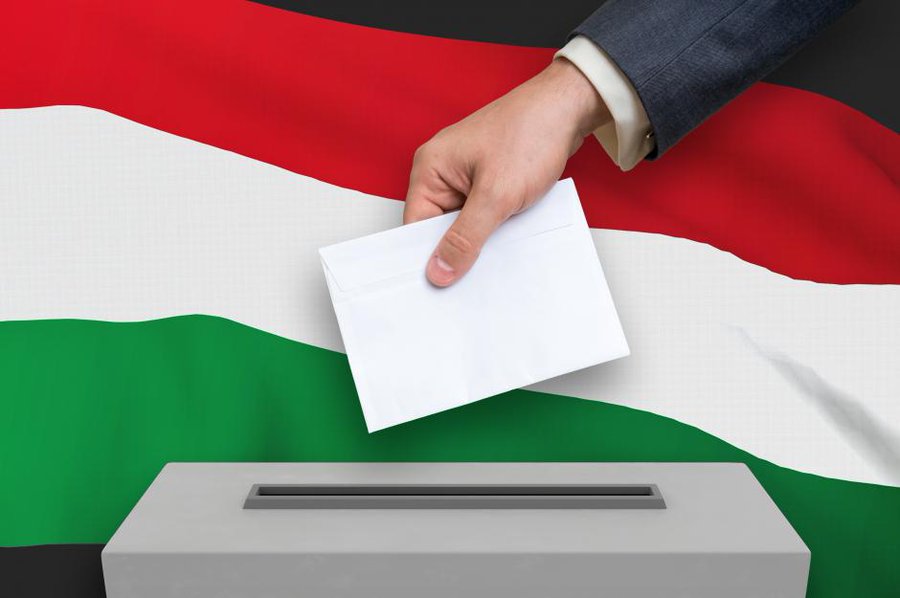The much-awaited final report by the OSCE Office for Democratic Institutions and Human Rights (ODIHR) on the parliamentary elections and referendum in Hungary on 3 April was published on Friday afternoon and confirmed the observations in the preliminary report.
As previously reported, the ODIHR’s International Election Observation Mission (IEOM) was invited by the Hungarian authorities to observe the parliamentary elections and referendum. The preliminary findings were published already on the following day. The elections were well run but the line between state and party campaigning was blurred.
The observers concluded that the elections were marred by the absence of a level playing field but declined to judge whether they were “free and fair” as they focused on the overall election process. In the final report, the election observers repeated their main findings but it is still not clear if the elections qualified as ‘free and fair’.
However, the long list of recommendations – 30 in total – speak for themselves. Hungary needs to improve the conduct of elections and support efforts to bring them further in line with commitments made by all OSCE countries, as well as other international obligations and standards for democratic elections.
The 199 members of the Hungarian parliament were elected under a mixed electoral system consisting of single-mandate constituencies and a nationwide proportional contest, with varying thresholds for parties and coalitions. According to ODIHR, the unequal voter distribution amongst the constituencies challenges the principle of equality of the vote.
The election law contains restrictions on electoral rights based on intellectual disability and distinctions in suffrage rights based on marital status, at odds with international standards. Convicts are also prevented from voting.
Less than 20 per cent of all candidates in the April elections were women. A woman, Katalin Novák, was elected to president in May but overall women are under-represented in Hungarian politics. Following the elections, only twenty-eight MPs (14 % of the total) and one of the government ministers are women.
The referendum on the so-called child protection law was declared invalid as the required threshold of 50 per cent of registered voters casting a valid vote was not reached. The law which was the legislative basis of the issues in the referendum was already in force, at odds with international good practice.
Another area at odds with international commitments and good practice is election campaign financing. The law does not provide for disclosure of campaign donations, which maintains the opacity of campaign funding, Extensive spending through third party entities, which largely favored the ruling party, rendered spending limits ineffectual.
As in some other countries, the State Audit Office is mandated with campaign finance oversight and has the power to verify the information submitted to it. However, it lacks the investigative capacity to ascertain actual campaign spending, according to ODIHR.
Freedom of media in Hungary is also a matter of concern. According to ODIHR, media operate in an increasingly concentrated market with the government and state-affiliated companies dominating the advertising market. Extensive government advertising campaigns and biased news coverage in the public and many private media provided a pervasive campaign platform for the ruling party.
Relations between the EU and Hungary are tense since years because of rule of law issues and the trend towards “illiberal democracy” in the country. The European Commission is still withholding EU funding to Hungary because of these issues. Populist statements by Hungary’s Prime Minister Victor Orbán and his pro-Kremlin position on Russia’s invasion of Ukraine will continue to challenge the EU.
On Friday, without connection to the election report, the political group leaders of the main parties in the European Parliament adopted a statement which “strongly condemned the openly racist declarations by Prime Minister Orbán” on “peoples of mixed race” and underlined that these declarations are in breach of EU values.
European Commission President Ursula von der Leyen also stated on Saturday that race-based discrimination is against EU values. Furthermore, the Parliament called on the Council to speed up the on-going rule of law procedures against Hungary. It reiterated its call on the Commission to refrain from the approval of Recovery funding to Hungary until the fulfillment of all relevant criteria.
M. Apelblat
The Brussels Times

